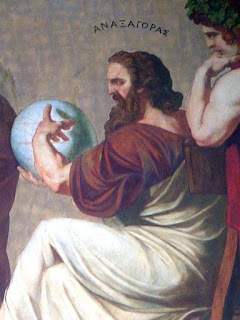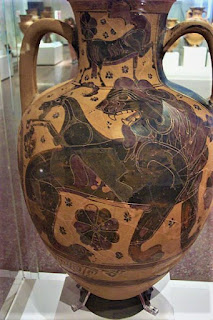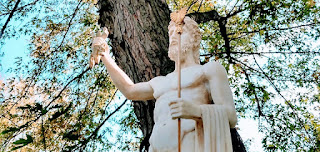Most people have probably already seen these two statues, but know them by sight only, because there are no other details, not even that modern archaeologists can tell. No one knows who the statues depict or how they even ended up where they were found.
For those who may not know, The Riace Bronzes refers to two magnificent bronze statues, believed to have been made in Attika or Argolis in the 5th Century BCE, and somehow ended up at the bottom of Italian waters in a place called Calabria. The pieces are not only notable because of their mystery, but because of their amazing precision and detail to the, apparently, human makeup.
When the Greek Reporter released a recent article on the topic, it grabbed my interest because I love historical mysteries, not to mention that I am a devoted Hellenic Polytheist.
The first question would be, if the statues were made in Attika or Argolis, how or why did they submerge off the coast of Italy? Let us consider that the 5th Century BCE was the era in which the Parthenon was built. So there were magnificently well known artists in that area during that period, who could have been commissioned by people outside the region to make statues or buildings for them.
We must remember that the most famous artist of the Parthenon was formerly the artist of the statue of Zeus at Olympia, which was one of the Wonders of the Ancient World. He had been called on, or hired, by Pericles for the Athenian Akropolis.
Even today, the best way for an artist to make a living is to find patrons. Without people who admire and are willing to buy your work, you travel the road of the starving artist. It's very well possible that these statues could have been made in Attika to be shipped to people or cities in other parts of the Greek world, and either fell overboard or went down with a sinking ship.
They were obviously foundered while on the way to their location. People don't normally order expensive bronze statues only to throw them in the ocean. So although they were found near Calabria, we can't confirm that's where they were headed. Nevertheless, somewhere in the Western Greek World around that region is a safe bet.
Ancient Greeks began settling in this Italian area as far back as the 8th Century, which means the patrons, or whoever ordered the statues, were likely of Greek descent or at least had an admiration for Greek culture.
But who are the individuals depicted? I would theorize Greek Heroes. While Greeks settled in this area much later than the Heroic Age, Heroes of Greece were believed to have traveled to the area long before. Odysseus, and very notably Diomedes who commanded at least 80 ships in the Trojan War.
After the war, He exiled Himself into Italy for fear of his life and even founded cities there, one of which is called Arpi, which is only around 3 hours away from Calabria's region itself. Who's to say that at least one of the statues didn't depict Diomedes and wasn't going to Arpi? Two perfectly depicted human images traveling together, I'd say there's a good chances we are looking at Heroes. Which ones, though, sadly remains unknown. But let's look upon the genius of the ancient Greek mind and marvel at what we do know about them.
In the Goodness of the Gods,
I'll see you at the next Herm down the road,
Chris Aldridge.







